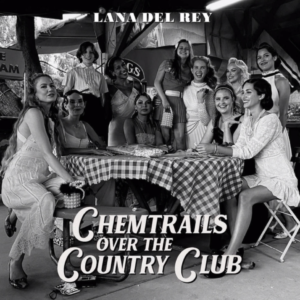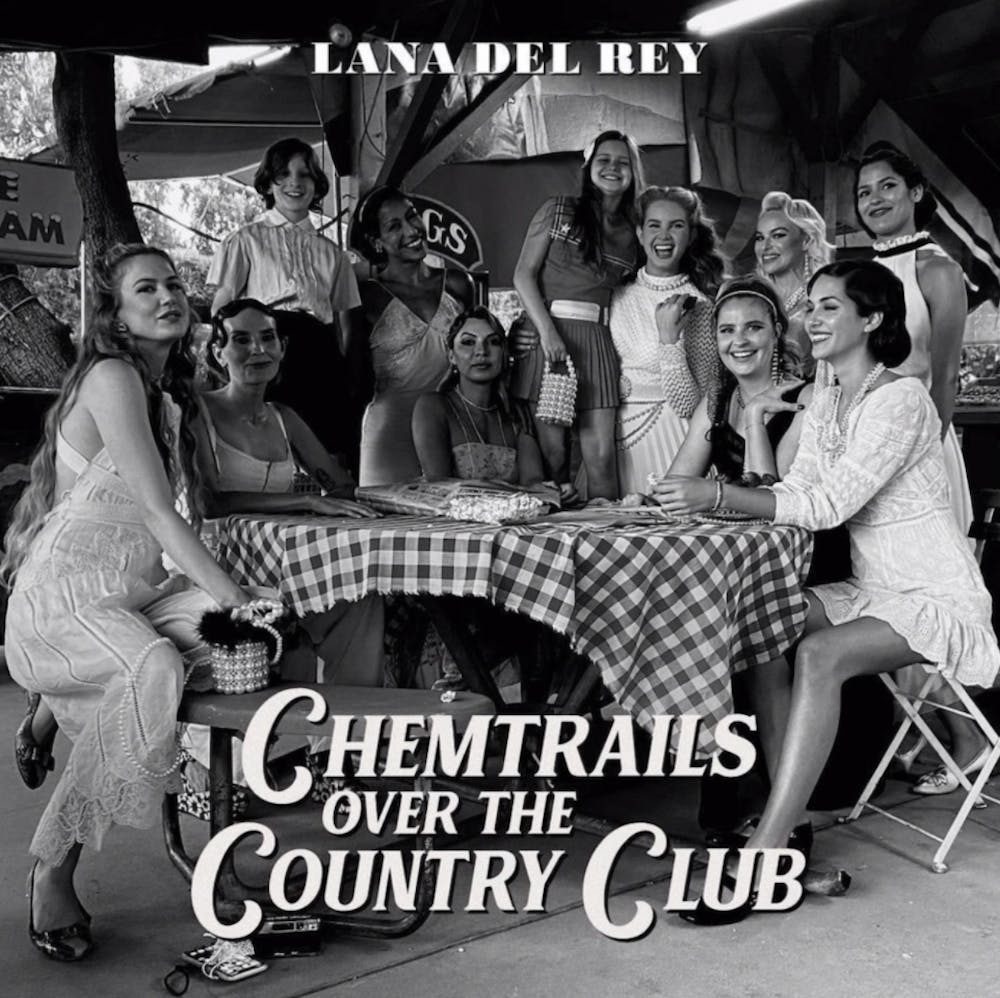By Joey Gibbs
Staff Writer
We are eagerly approaching the one year anniversary of Lana Del Rey’s tone deaf “question for the culture” post where she complained about the backlash she received from listeners saying her submissive content and lyricism “glamorizes abuse.” She called out fellow female artists, including Cardi B and Nicki Minaj, for having songs about “fucking” and “cheating” while she came under fire for music that depicts emotinally abusive and passive female roles in relationships, as her music is lyrical explorations of real relationships she herself had.

The aftermath of this post led to a series of unfortunate events by our honeymoon queen, as she simultaneously wore an ineffective mesh facemask and insisted she could not be racist based on her previous rapper lovers. Her image, although elegant and glamorous, does not save her from saying (and sometimes doing) rather airheaded things in my opinion.
With that being said, I do agree with Ms. Del Rey that among turmoil can arise beautiful creations — that being her newest album, “Chemtrails over the Country Club.” I am curious to know how self-proclaimed Lana stans feel about this album because as each of them are “Born to Die” for her, they also go out of their way to critique and poke fun at her, with no limitations on their harshness.
Lana Del Rey is an enigma, and not like the one on Lady Gaga’s “Chromatica.” Lana Del Rey captures this mystique that no other artist can compare to; it is this detailed and well-calculated image of nostalgia and utopia juxtaposed with hopelessness and vulnerability. Yet, behind it all, is an unparalleled resolution of femininity and strength. Through the years, instead of experimenting, the honeymoon queen decided to explore and cultivate this image and it led to an expansion rather than a development.
Del Rey spent nine years of risky consistency to ensure she never bores her audience, and overall she has been very successful. However, the sound of “Chemtrails over the Country Club” was like a beautiful emptiness — it was a mix of this delectable isolation, but also a sort of bland melancholy. I commend greatly the flow of the album and how much it felt like a body of work as she evoked and built on familiar themes of California, rugged domesticity and Jesus.
The album opens up with one of the weakest tracks on the album, “White Dress.” The lyrics are autobiographical in nature, depicting a yearning to capture her youthful naivete and possible liberation when she was nineteen. However, she fights a losing battle with her upper register for half the song, resulting in what I believe was intended to be a breathy sound to be out of breath and whiny. Del Rey has performed time and time again that her unmatched chesty croon can be the epitome of delicate and gentle, while maintaining an unwavering stand — her artful choice not to use it falls flat as she unfavorably captures the sound of Camila Cabello. “White Dress” needed some more love and attention; however, it was the only malady of the whole album.
As the beginning of the album tapers on, Del Rey does a fairly good job of keeping listeners interested. The album’s title track, albeit rather forgetful, is melodically strong and effectively captures a load of interesting and thoughtful themes. The sounding serenity blends the mystery of chemtrails with another aspect of yearning — this time for suburbia, tying it all together under the shining sun of her absolute favorite season, summer.
She continues with the tastefully autotuned “Tulsa Jesus Freak,” and there is something so utterly captivating about the sound of “white-hot forever,” which is thankfully repeated so I can drown in its lovely display. In the same vein of “Video Games,” lyrically she is describing a problematic lover who she addresses as problematic, but seems to like him better that way.
The strongest track on the album is “Dark But Just A Game” — hauntingly memorable, lyrically powerful and tastefully theatric. The fuller orchestration as compared to other songs is recognizable and beneficial; this is definitely her strongest sound of nostalgia. This song is built off a quote from Jack Antonoff, who not only helped produce this eccentric album, but also has been a key member in the production of Taylor Swift’s “Folklore.” Lyrically, it is a captivating story — a warning even — of the trials and tribulations of fame.
“For Free,” the last song on the album, is not only an incredible rendition of Joni Mitchell’s 1970 song, but also an excellent collaboration with singers Zella Day and Weyes Blood. The subtle harmonies, the isolated vocals, the way each unique voice compliments the light orchestration — the song is bone-chillingly beautiful. The one issue is its unnecessarily abrupt ending. It takes us right out of the scintillatingly lugubrious world she built for us with the sound of this album. We wake up from our nostalgia and are left confused, but a part of us is sadly content.
While not the strongest contender of 2021, Lana Del Rey did create something beautiful. There is a stark realness this album brings that causes me to relax uneasily, but give me time to gather my things and start to grow. “Chemtrails Over the Country Club” is an artful album of regret and nostalgia that hints at rebirth through forgiveness and realization. I thoroughly enjoyed this album, and I am sure all listeners can come away from it with some understanding of and empathy towards Del Rey’s immaculate sadness, but can find the tools to reflect and improve themselves right in front of them.
4 out of 5 stars.
Top Tracks:
1. Dark But Just A Game
2. Tulsa Jesus Freak
3. Let Me Love You Like a Woman







